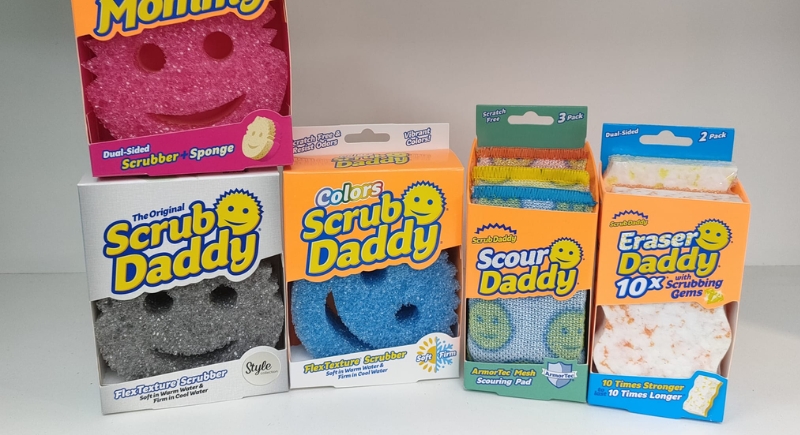Lori Greiner, a longtime investor on "Shark Tank" and the entrepreneur behind over 1,000 successful product launches, built her wealth by betting on real consumer needs—not just trends. She looks for practical ideas that solve everyday problems, backs founders she trusts, and brings products to stores people already shop at.
These business moves show how clear thinking, research, and persistence can lead to real money. If you’re looking to turn one solid idea into income, start here.
Trusting Speed Over Perfection

Credit: Getty Images
Acting quickly gives the TV personality a consistent edge. She makes decisions once she identifies a high-performing product-market fit, not after every possible detail is resolved. Entrepreneurs tend to lose momentum chasing perfection, but her record shows that well-timed execution backed by research creates better outcomes than waiting.
Identifying Tools That Solve Daily Problems

Credit: Proxima Studio
Items that address routine challenges tend to create dependable revenue. Look for products that improve tasks people do—cleaning, organizing, and storing. People understand the value right away. That focus on utility helps avoid fads and maintain sustainable relevance.
Backing People Who Did the Work

Credit: Facebook
Founders who walk in with functioning prototypes, tested feedback, and real sales stand out throughout the evaluation process. PhoneSoap, for instance, showed demand ahead of the airing of its pitch. Greiner invested after seeing it solve a common issue with measurable interest.
Avoiding Emotional Traps in Business

Credit: Getty Images
Letting go of personal attachment to an idea is difficult, but essential. Greiner avoids deals where feedback is dismissed as a threat. Direct thinking makes businesses more agile and sustainable. Strong entrepreneurs recognize that criticism doesn’t mean failure, but a chance to build something that actually lasts.
Using Simplicity to Scale Faster

Credit: Canva
An idea that takes too long to explain usually struggles in retail. If customers can’t grasp the benefit immediately, sales can stall. Straightforward communication gives new products a good shot at initial traction. Greiner’s top-performing offerings share clarity, rather than complexity. They solve familiar challenges in ways that don’t require much explanation.
Relying on Customer Feedback Prior to Scaling

Credit: Facebook
Long before her solutions reached major retailers, the entrepreneur asked potential buyers for honest opinions. Her first jewelry organizer evolved based on real-world feedback. She often points to firsthand responses as her most effective design tool. Testing products in small ways reveals flaws before large investments lock in mistakes.
Separating Finances from Personal Relationships

Credit: studioroman
Borrowing from friends or family often introduces complications once a business hits turbulence. You should strive to seek support from experienced investors who understand financial risk and won’t personalize delays or pivots. This helps entrepreneurs stay clear-minded and accountable.
Choosing People Carefully

Credit: Getty Images
How someone handles disagreement, delay, or pressure matters more than how they present under ideal conditions. Enthusiasm alone is not sufficient for success. In fact, you need to show resilience, too. When conversations show defensiveness or inconsistency, Greiner makes it a point to pass, regardless of how impressive the product may be.
Treating Packaging as a Business Tool

Credit: Facebook
When Greiner invested in Scrub Daddy, she helped redesign the packaging to effectively showcase how it changed texture in hot and cold water. That update improved shelf visibility and simplified customer understanding. Effective packaging communicates function immediately.
Spending Money Where It Counts

Credit: AlpakaVideo
Greiner built her first business without a team or office by channeling funds into production and fulfillment instead. That gave her room to adapt and grow without debt. The entrepreneur frequently sees early-stage founders burn resources chasing professionalism over function. Keeping budgets focused on value, not vanity, leads to improved outcomes.
Building Depth Ahead of Expansion

Credit: Getty Images
Rather than juggling several items at once, Greiner suggests concentrating on strengthening one until it’s scalable. Spreading effort too thin leads to shallow progress. Resilient foundations accelerate long-term scale better than scattered ambition. When one idea succeeds, it creates space and resources to support future ideas more effectively.
Evaluating Market Fit First, Not Last

Credit: Getty Images
Before committing, Greiner reviews pricing, competition, and customer behavior. She makes market fit her first checkpoint rather than simply proceeding with a deal. A clever idea means little if no one is willing to buy it. That is why she avoids goods that don’t match how consumers shop or think.
Working in the Business

Credit: pixelshot
Initially, handle every part of your operation firsthand instead of delegating. Packing orders, responding to customers, and managing logistics give you a broader picture of where issues occur. This involvement builds judgment and prepares you to lead more effectively.
Revisiting Weak Spots Until They Improve

Credit: Canva
The American businesswoman doesn’t gloss over small troubles. With Qball, the throwable microphone, she helped refine messaging so educators immediately understood how it worked. Lasting success depends on quiet, repeated refinement instead of temporary fixes. If pricing, design, or logistics don’t function smoothly, she keeps adjusting until they do.
Setting Well-Defined Terms to Avoid Future Issues

Credit: 89Stocker
Each agreement she makes includes specifics: ownership, responsibilities, timelines, and decision authority. After all, structure protects partnerships from miscommunication, especially once money or momentum increases. When both sides understand their roles, they can focus on building rather than backtracking.
